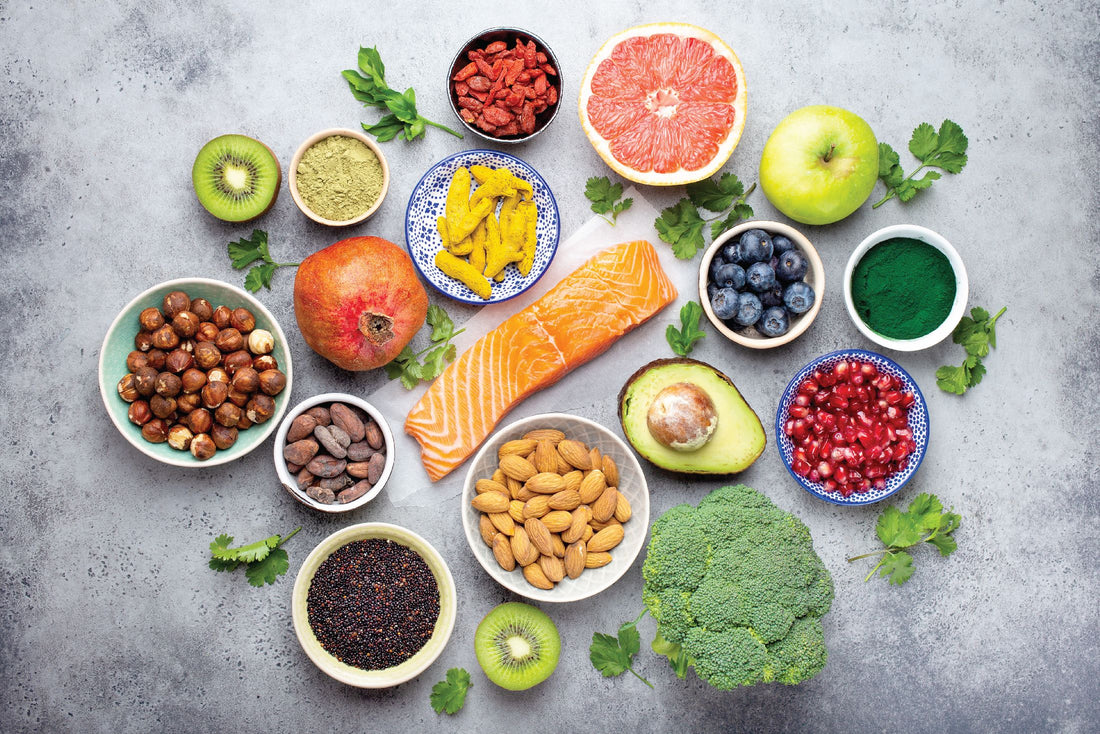
Nutrition or Fiction: Debunking 4 Myths About Superfoods
Share
From the healing powers of bone broth to the nutrient density of kale—everything seems to be a superfood these days. And it seems like a new one pops up in the news all the time. Which makes it hard to know what’s true.
Should you believe everything you read?
In this article, we’ll separate the facts from fiction surrounding superfoods. That way, you can make informed decisions about your diet and health.
Let’s get right into it.
What are Superfoods?
Superfoods are nutrient-dense foods packed with vitamins, minerals, antioxidants, and other components. These are often linked to better well-being and reduced risk of diseases. Some examples of superfoods are pumpkin seeds, kale, avocado, and blueberries.
Is there Scientific Evidence for Superfoods?
Because there is no scientific definition for superfoods, it’s not easy to know if something truly is one. However, there are scientific studies that help determine if a food or product is more nutritious than others.
As such, in some countries, scientific evidence is required to put “superfood” on a label. In fact, the European Union requires brands to provide scientific evidence before using the term on any of their products.
There are also government bodies that regulate the use of the word superfood. This is to ensure that the consumers aren’t misled by false claims. The Canadian Food Inspection Agency, for one, implements policies on food and nutrition labels.
4 Common Superfood Myths
We all want to stay healthy and make smart food choices, but it can be hard to know what’s fact and what’s fiction when it comes to nutrition. With so much conflicting information about them, it's easy to believe the misconceptions.
Here are the 4 top myths about superfoods.
Myth #1: Everything is a Superfood
Although there isn’t a standard criterion for superfoods, that doesn’t mean everything is one. There are a few factors that researchers, health professionals, and government organizations consider before accepting an item as such.
First, food must contain high levels of nutrients, vitamins, and other properties that boost human health. Second, these claims must have a solid scientific basis.
Myth #2: Superfoods Aren’t Real
Contrary to growing beliefs, superfoods aren't as fictional as Superman. There are several foods that are more nutritious than others and good for your health.
Styrian pumpkin seeds, for example, are rich in nutrients and antioxidants. Because of that, research also shows they can help reduce the likelihood of certain cancers, prostate and bladder illnesses, and cardiovascular diseases.
Myth #3: They Can Cure Serious Diseases
While superfoods can help prevent certain diseases, it doesn’t mean eating them every day will remedy all your aches and pains. Doing so might even lead to more sickness, especially if you eat too much of a certain food.
That’s because the human body is so complex that we need a variety of nutrients, minerals, vitamins, and other compounds. That said, the best way to maximize the benefits of nutrient dense foods is to eat a well-balanced diet and have an active lifestyle.
Myth #4: Superfoods are JUST a Marketing Tactic
There’s no denying that many companies use the term to increase sales. However, the word is more than just a marketing strategy. There is scientific-backed research showing that there are foods with higher nutritional value and boost health. The trick is to do your research before buying into the label.
The Truth About Superfoods
Superfoods can help you meet your nutritional needs and make up a part well-balanced diet. But it’s important to be aware of the myths surrounding them, so you can make smarter decisions about the food you eat.
As with any food choice, make sure to consider the research first before considering the claims.
Want to know about our selection of plant-based treats?
At Nutrika, we curate a range of delicious and nutritious plant-based food products for a healthier and more sustainable diet. Learn more about our tasty snacks, healthy oils, and nutritious powders to see what works for you.